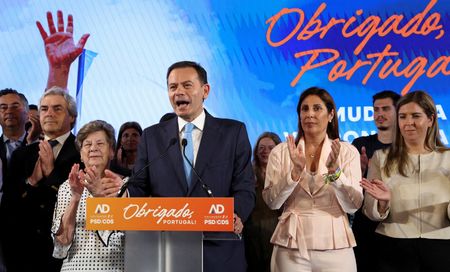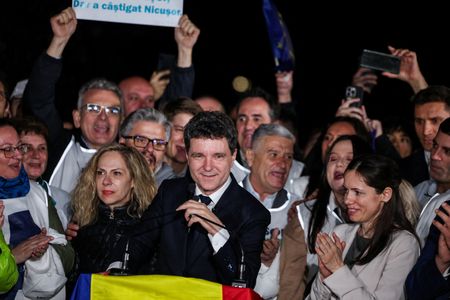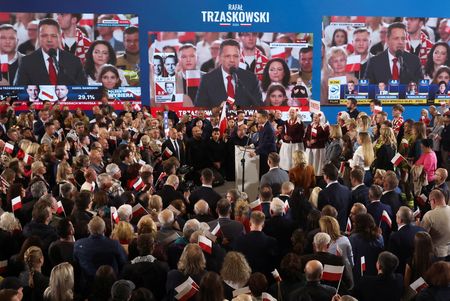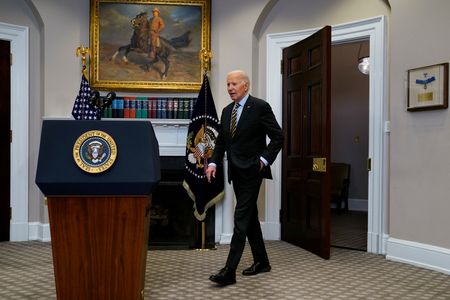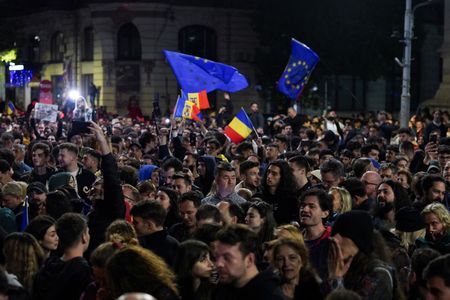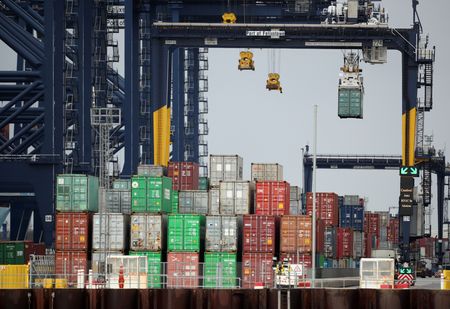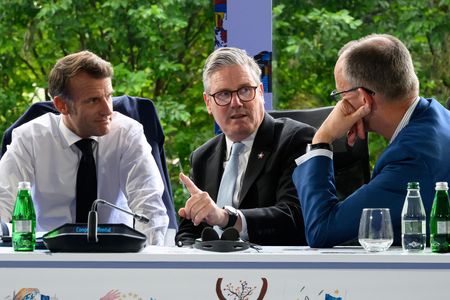By Catarina Demony, Sergio Goncalves, Andrei Khalip
LISBON (Reuters) -Portugal’s centre-right Democratic Alliance (AD) won an early parliamentary election on Sunday, but again fell short of the full majority needed to end a long period of political turmoil, while the centre-left Socialists and far-right Chega were nearly tied for second place.
The election, the third in as many years, was called one year into an AD minority government’s term after Prime Minister Luis Montenegro failed to win a vote of confidence in March when the opposition questioned his integrity over dealings of his family’s consultancy firm.
Montenegro has denied any wrongdoing.
Voters have largely dismissed the opposition’s criticism and apparently punished the main opposition Socialists at the polls for being instrumental in bringing down his minority government.
With all of the domestic ballots counted, electoral data showed the AD winning 89 seats in the 230-seat parliament, nine more than in the previous election.
“The Portuguese don’t want any more snap elections, they want a four-year legislature,” Montenegro said as his supporters chanted “Let Luis work,” his campaign slogan. He said the election result was a vote of confidence by the Portuguese that the opposition will have to respect.
Far-right Chega outperformed most opinion polls and took 58 seats, eight more than last year.
The Socialists obtained just about 50,000 votes more than Chega and fell to 58 seats from 78, a huge blow to one of Portugal’s two main parties. Socialist leader Pedro Nuno Santos said he would step down.
‘WE’VE MADE HISTORY’
Votes from abroad, which will be counted in the coming days, could still put Chega in second place, which would be the first time in almost 40 years that the Socialists don’t finish in the top two spots.
Montenegro has refused to make any deals with Chega, meaning his government would have to negotiate piecemeal parliamentary support unless it finds another solution. He said he expected to form another minority government.
Political scientist Adelino Maltez told Reuters that Chega’s results were proof “bipartisanship … is over,” and said that “if democracy is in danger,” Montenegro’s party and the Socialists should come to an agreement to govern in a grand coalition.
The centre-left and centre-right parties formed their only official coalition in 1983-1985.
This election, which was also dominated by issues such as housing and immigration, follows a decade of fragile governments; the only one of which to have a parliamentary majority still collapsed halfway through its term last year.
Chega, an anti-immigration and anti-establishment party founded in 2019 by former football commentator Andre Ventura, who is known for his derogatory remarks against ethnic minorities, became the third-largest parliamentary force in 2022 and quadrupled its seats in 2024.
“We didn’t win this election, but we’ve made history,” Ventura told a room packed with jubilant supporters, adding he believed his party would still finish second after votes from abroad are counted.
Chega has managed to win in some areas of the country where left-wing parties have traditionally received the most votes, including the Beja district in the southern Alentejo region.
Outside the polling station where Montenegro voted in the northern city of Espinho, Irene Medeiros, 77, said she feared more uncertainty ahead.
Portugal has outperformed most European Union countries on economic growth, run budget surpluses and reduced its debts under both centre-left and centre-right governments.
But further political instability could delay major projects such as lithium mining in the northern part of the country and potentially compromise the long-delayed privatisation of the TAP airline.
(Reporting by Catarina Demony, Sergio Goncalves, Miguel Pereira, Elena Rodriguez and Leonardo Benassatto; Editing by Andrei Khalip, Rod Nickel and Paul Simao)

